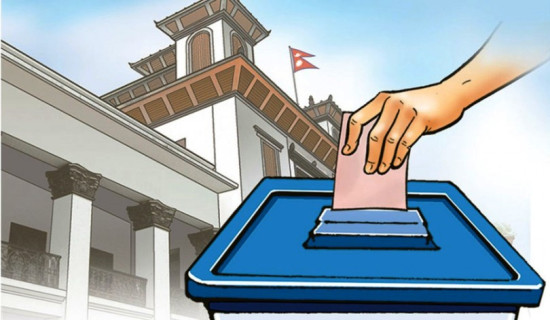- Sunday, 12 October 2025
Cost Of Brain Drain
The quick and high loss of qualified young people from Nepal, often called "brain drain," is a big worry for the nation, with many adverse consequences. Factors like a lack of employment opportunities, less vocational training, the pull of a good life in foreign lands, and schools that do not prepare students for work are mainly responsible for this. Yet, to really know how bad this is, we must look deep into its effects on money, society, and what will come later.
While money sent home by Nepalis working abroad (remittance) makes up about 26 per cent of the nation's GDP, this is not without big risks. A small economic upheaval in destination countries can affect the Nepal's economy badly. This also leads to over-dependency on other countries, inhibiting national economic growth.
Nepal is losing doctors, engineers, tech people, and trained workers. This means there are not enough people for key jobs. Fields like healthcare, education, and technology suffer from a lack of qualified people. Additionally, young folks with new ideas and the will to start things are leaving. So, the land loses work, fresh ideas, and chances to create new jobs at home. This shows in Nepal's low spot in the Global New Ideas List.
Moreover, fewer working professionals in the country lead to less income tax collected. Oddly, with trained locals leaving, Nepal now needs workers from outside, mostly to fill spots in building and farm work. This adds to the money drain. A lot of money goes with the students going outside for education.
Another demerit of brain drain is the change in family dynamics. Families split, and youth coming back often find it hard to fit in again and may face bad feelings if they don't bring enough money back. They may also feel sad or worried due to their time outside not being fruitful. Not only that, villages turn into homes for the old. As young people leave, many country places turn into homes for the old, with few young workers. This hurts the way people in these places live and work together.
Many from Nepal, especially in simple jobs in Gulf countries, face a lot of mistreatment and harm, and unsafe working conditions, leading to physical and psychological problems when back home. Women, often going through unsafe ways because of bans, face a big risk of abuse and trafficking.
While the nation sees the problem, fixes are slow and often not enough. Some steps include: Policy for young people: Plans to help young people take part in growing the nation, to learn skills, and to start their own business.
Deals on work: Deals with labour destination countries to ensure better working conditions as well as rights.
Talks on making schools better: Talks on plugging the gap between schooling and jobs in high demand. This makes learning more about the real skills needed in workplaces.
Push for new business: Moves to help new business ideas with starting money, small loan plans, and spots to help new businesses grow.
Pull in investment: Moves to make a welcoming spot for big outside businesses and to help local work grow. Yet, making these work well is not easy. A full plan needs:
Big push for jobs: This means not just more money in current work areas but also finding and helping grow new work areas with big future chances, like tech, clean travel, and farm work, making a good place for new businesses.
Big changes in schools: Moving past just learning by heart to smart thinking, fresh ideas, and hands-on skills. This includes closer collaboration between schools and workplaces, mandatory training times, and promoting learning in emerging work fields such as AI and clean energy.
More money in new ideas: Making a place that backs research and new ideas can retain creative people and contribute to nation-building.
The youth of Nepal are not just leaving; they are seeking their best chance elsewhere. To buck this trend, there is a need for a big change in national focus. This entails moving past quick fixes to take a long look that puts money in its best resource: its people, which gives them a real chance to grow and do well at home.



-original-thumb.jpg)













